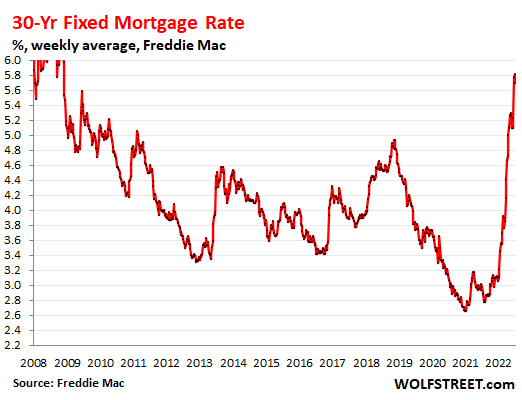RE/MAX, Anywhere Real Estate reach settlements in high-stakes lawsuit that could reshape homebuying

Two of the defendants in a high-profile class-action lawsuit over real estate commissions have reached potential eight-figure settlements and agreed to change some of their business practices.
RE/MAX Holdings Inc. and Anywhere Real Estate Inc., formerly known as Realogy Holdings Corp, the parent company of Coldwell Banker and others, have each agreed to settlements in the class-action lawsuit.
The case was certified as a class action at the end of March. In addition to RE/MAX and Anywhere, other defendants include the National Association of Realtors; BHH Affiliates LLC; HSF Affiliates LLC; The Long & Foster Cos. Inc.; and Keller Williams Realty Inc. The suit is currently in the discovery phase and no trial date has been set, although a variety of discovery deadlines loom in the fall. No other settlements have been announced or confirmed at this time.
Keep up with the latest business news and headlines by signing up here for The National Observer newsletter.
RE/MAX agreed to pay $55 million in total to settle its role in two separate class-action lawsuits, in Sitzer v. The National Association of Realtors and in Moehrl v. The National Association of Realtors.
It also agreed to make changes to its business practices, according to a Securities and Exchange Commission filing. In the filing, RE/MAX said the settlement was not an admission of guilt or liability and said it continued to deny the complaints in the lawsuits.
In a statement, RE/MAX said the settlement, if approved by the court, paves the way for a clear path forward for the brand and removes uncertainty of ongoing litigation.
“While RE/MAX LLC steadfastly refutes the allegations presented in the lawsuits, this forward-looking decision was made in the best interest of RE/MAX LLC, its agents and its franchisees, after carefully considering the significant risks and costs associated with continued litigation,” RE/MAX said in a statement. “Co-Founders Dave and Gail Liniger built the RE/MAX brand with broker/owners, agents and consumers at the center of the business and, if approved, the settlement specifically includes releases of liability for RE/MAX franchisees and agents.”
The statement and SEC filing didn’t indicate what changes RE/MAX could make to its business practices, and the company said it couldn’t comment further at this time.
Anywhere Real Estate is also settling in the cases, according to a notice of pending settlement document in the Moehrl case filed on Sept. 5. A HousingWire story pegged the total settlement amount at $83.5 million.
“The path to obtain final approval and implement the settlement is a long one, and Anywhere has taken the first important step toward a resolution that not only releases the company but also our affiliated agents and franchisees,” the company said in a statement. “We believe the settlement will remove future uncertainty with respect to the upcoming trial, potential additional claims and legal expense, enabling Anywhere to focus on and continue delivering what’s next for agents and franchisees.”
The company also declined to elaborate on details of the settlement at this time or how its business practices would change.
The background on Moehrl v. The National Association of Realtors
At the heart of the Moehrl lawsuit, filed in 2019 by a group of people who have sold their homes since 2015, are claims that sellers paid more than they should have in commissions. The allegation is based in a complex web of rules and policies that require those selling a home to pay the buyer-broker through a commission. Plaintiffs claim the setup keeps commissions higher than necessary because of the risk of losing potential buyers.
Plaintiffs were asking for damages estimated at $13.7 billion for anyone who paid a commission to the defendants between March 6, 2015, and Dec. 31, 2020. They also are demanding a significant overhaul of industry practices they argue would lower commissions for buyer and seller agents.
In a statement to The Business Journals provided over the summer, the NAR said the practice of the listing broker paying the buyer-broker’s compensation saves sellers time and money by having so many buyer-brokers participating in that local marketplace, which creates a larger pool of buyers for sellers.
How Moehrl v. NAR could shape the homebuying industry
Multiple listing services, which are local or regional databases of for-sale properties, are central to the lawsuit.
The vast majority of homes for sale are listed on an MLS and nearly 97% of MLS databases are owned or operated by one or more local Realtor associations. Those listing services are governed by rules made by the NAR and enforced by the MLS sites, and Realtors — who are members of NAR — must abide by those rules as part of their own official code of ethics established by the NAR.
One rule requires, when listing a home for sale on the MLS, the listing seller-broker must make a blanket unilateral offer of compensation to the buyer-broker. The seller-broker’s offer must be either a fixed percentage of the home’s sales price or a definite dollar amount. No individual negotiations are accepted.
That means the seller, rather than the buyer, pays the buyer-broker commission through a specific amount of the seller commission. MLS rules allow buyer-brokers to select the listings they display on their personal websites based on buyer-broker commission offers, and sellers are urged to include blanket offers in their agreements for fear of agents steering clients to homes that offer better broker compensation.
While the defendants have argued the status quo has a number of benefits, including a centralized source of available homes, plaintiffs argue the system creates an anticompetitive market that requires sellers to pay higher rates than they should to buyer-brokers. They argue that, as the internet flourished, buyer-brokers do less work than they used to, as homebuyers search for homes and do much of the work themselves. While the advance of digital technology has lowered commissions in other industries, such as travel agencies or stock brokerages, the plaintiffs allege commissions in real estate have gone up, not down, because of industry practices.
One of two experts retained by the plaintiffs estimated damages for the class at $13.7 billion and said, if it were not for these rules, buyer-brokers would, when used by buyers, make about 1.55% commission on the purchase of a property. Those commissions currently average between 2.5% and 3%, according to real estate data company Redfin Corp.
Jasen Edwards, chair of real estate agent consulting firm AgentAdvice.com’s Agent Editorial Board, said over the summer a victory by the plaintiffs would significantly change the way real estate agents are compensated and eventually reshape the entire industry. If the court demands a change in the way commissions are structured, Edwards said it could become more common for home sellers to negotiate separate fees for the listing agent and the buyer agent.


